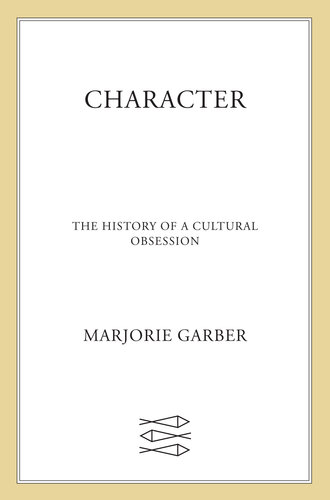
Character
The History of a Cultural Obsession
کتاب های مرتبط
- اطلاعات
- نقد و بررسی
- دیدگاه کاربران
نقد و بررسی

April 15, 2020
The acclaimed literary scholar considers the shifting significance of the term "character." Garber, a Harvard professor of English and visual and environmental studies, brings a wide range of sources to her erudite, illuminating study of the "complex, sometimes self-contradictory, and often elusive concept" of character, whose meaning has changed throughout history. Claiming the idea of character to be a cultural obsession involving politics, entertainment, education, psychology, neurology, art, and literature, Garber examines many questions it has generated: "How can it be perceived, measured, assessed, developed, trained, or 'built'?" Is character "innate, learned, taught, or instilled? Are character traits fixed or changeable?" Is there such a quality as a national character? Is character synonymous with personality? Is a person's character visible, able to be "read" by head bumps, as phrenologists believed, or analyzed by physiognomy? As the author explores such questions, she turns to sources as varied as Shakespeare (Garber is a noted Shakespeare scholar) and other playwrights, Greek philosophers, photographers and artists, education tracts, and contemporary political rhetoric. The idea that character can be trained, she asserts, was promoted by many 19th-century self-help books as well as the Scouting movement. Character building "was an invitation to personal initiative." The popular 19th-century educational series McGuffey's Readers, Grimm's fairy tales, and even The Wonderful Wizard of Oz all contain moral teachings to help a child build character. Garber traces the 18th-century fad of physiognomy, which later emerged as phrenology, which asserted that qualities such as greed, wickedness, melancholy, and maliciousness could be assessed from physical traits. Rubrics of character traits have been popular for centuries: As far back as the fourth-century B.C.E., Theophrastus came up with a list of 30 character types, including The Flatterer, The Reckless Cynic, The Officious Man, The Vain Man, The Oligarch, and The Slanderer, most of which, Garber astutely notes, are recognizable today. A capacious overview of an enduring human value. (32 pages of b/w illustrations)
COPYRIGHT(2020) Kirkus Reviews, ALL RIGHTS RESERVED.

April 20, 2020
Garber (Shakespeare’s Ghost Writers), a Harvard professor of English and environmental studies, offers an intriguing and informative look at the concept of personal character, focusing on the term’s use in Britain and the U.S. over the past 200 years. Garber examines how the idea of “character”—roughly (if not always) equated to moral worth— has become particularly prominent since Donald Trump’s election and attendant ethics controversies. She then traces out how the understanding of character has shifted over time. Garber covers the idea of a national character, explores Boy Scout founder Robert Baden-Powell’s belief in character as a trait that can be developed with “factory” efficiency, and examines how “character” factors became a cover for anti-Semitism in early 20th-century Ivy League admissions. Garber is skilled at drawing connections between different cultural moments; for instance, she connects modern—and, to her, flawed—efforts to map character through brain scans with the 19th-century pseudoscience of phrenology. While Garber leaves her discussion open-ended, her information-rich book will be helpful to readers in highlighting how a concern with character has been central to modern life.

May 15, 2020
This panoramic look at the concept of character reveals cultural shifts, unexploded fallacies, and more than a little bad behavior, rhetorical and otherwise. What does it mean to have character or to say that one has character issues? To what extent are character traits or character types fixed or mutable, innate or conditioned, essential or enacted? What about the character of a nation or a group of people? Surveying philosophical, literary, and social science perspectives as well as recent political rhetoric, Garber (The Use and Abuse of Literature, 2011) finds that character is a bewilderingly slippery abstraction that has endured and evolved. Once an assertion of ethical substance and personal virtue, more recent usage implies that character is something to be performed, not built. Too often, it is defined by its absence, as in actions deemed out of character or when someone's character is praised despite despicable actions. Garber wonders if the concept is so hollowed out by misuse that it should be retired, but in the end, she views character as a mirror reflecting the contradictions that define human nature.(Reprinted with permission of Booklist, copyright 2020, American Library Association.)

























دیدگاه کاربران